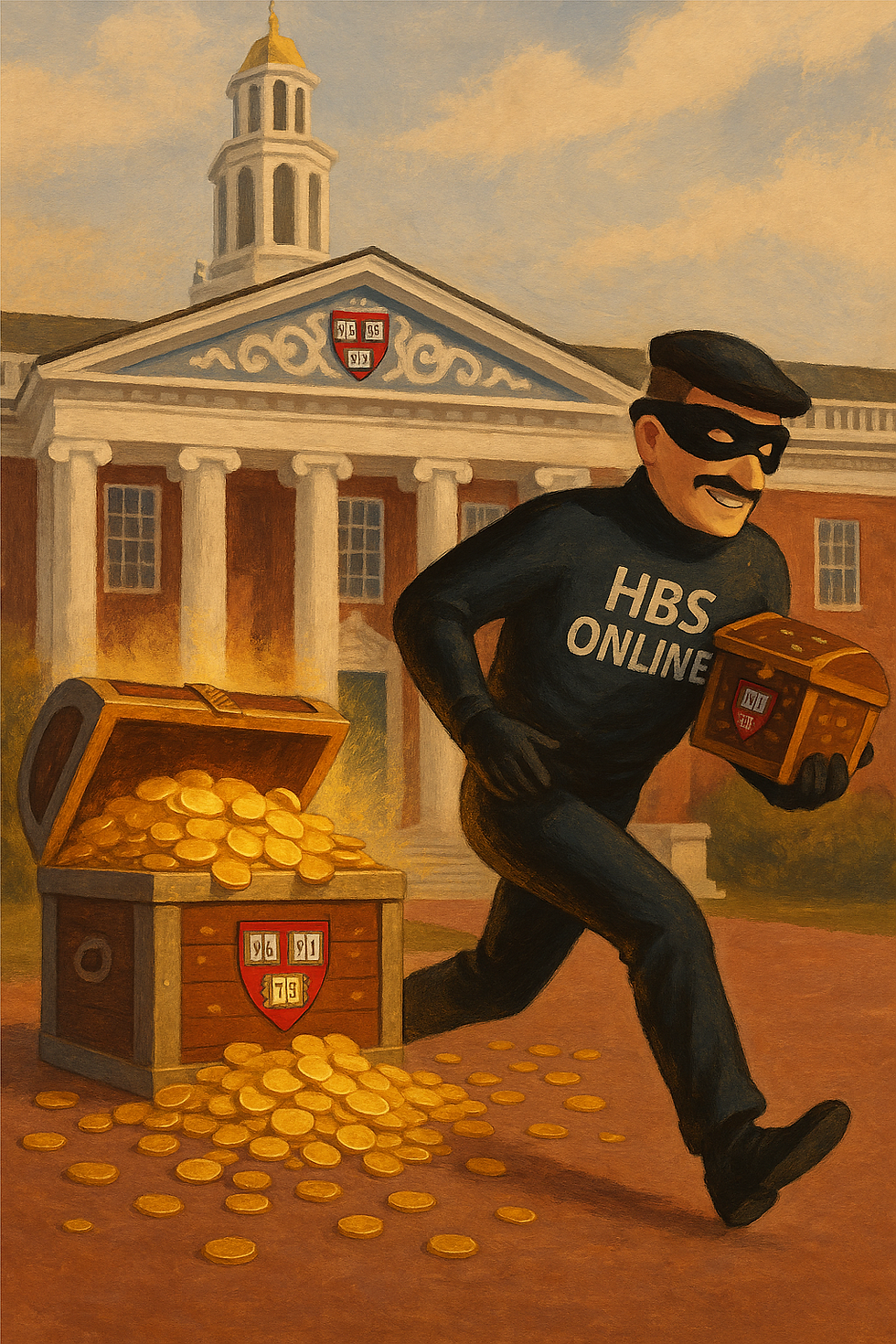In Response to “The Prestige Paradox of HBS Online”
- Patrick Mullane

- Nov 13, 2025
- 3 min read
To the editor:
As the Executive Director of HBS Online and Executive Education at HBS, I feel it’s important to respond to the views expressed by The Harbus News Staff in the editorial titled The Prestige Paradox of HBS Online, published on 11/05. I care deeply about the long-term value of the Harvard Business School brand not only because I’m leading these non-degree programs, but also because I am a graduate of HBS (MBA ’99). While the editorial raises important questions about mission, scale, value, and brand, I believe the premise and the conclusions drawn are misplaced.
The initial premise of the article: that “a brand’s equity derives from the associations, expectations, and emotional resonance it evokes” is sound. But the follow-on assertion—that elite institutions “trade not only on intellectual substance, but also on the signal of exclusivity” is unnecessarily narrow. The Harvard Business School brand is one of excellence, and that is the throughline of its educational programs—whether leading to an MBA or PhD degree, or to a certificate through Executive Education or HBS Online. Brands also get value – particularly in a mission-driven higher education context – by remaining true to their core principles and by delivering outstanding products and services to their customers. HBS Online courses offer—and demand from the individuals who take them—an intensive, interactive learning experience, rooted in the case method. Harvard Business School’s mission is to “educate leaders who make a difference in the world.” We expand the reach and impact of the School to include aspiring leaders the world over because we believe that business done well makes the world a better place. Put simply, well-trained business leaders drive positive change in their organizations and create prosperity in their communities. We also believe that talent is more equally distributed than opportunity which compels us find ways to extend our reach rather than limit it.
The editorial points to a handful of risks. One is that HBS Online is a distraction to faculty attention and administrative energy that risks hurting the MBA’s residential core and that over time this will “weaken the flagship.” It’s true that new initiatives can be a distraction from the core. But after more than a decade, HBS Online has had the inverse effect. During those years, the MBA program has thrived and online courses have helped our MBA admits to quickly get up to speed on core business concepts before starting their on-campus program. The current headwinds facing MBA programs alluded to in the article are driven by macro trends in technology, business, and higher education spaces, not internal decisions about how to extend our educational reach. While strategic focus is important, strategic innovation and diversification can strengthen rather than weaken the flagship.
The other risk mentioned centers on brand dilution through overextension, with the claim that “if democratization were truly the goal, the model would look more like MIT OpenCourseWare or Khan Academy: free, open, and mission driven.” Democratization is indeed part of our goal but so is financial sustainability. The online landscape is littered with examples in both the private sector and in higher education of offerings that had to be shut down when the financial math didn’t work. While we may reach fewer people by charging a fee, we’ll reach none if we can’t fund our operations. It’s also worth noting that our online participants complete their programs at a much higher rate than participants in free programs. Charging a fee gives participants skin the game which in turn increases the quality and seriousness of participants, improving the experience for all.
HBS became a leader in business education by finding new and innovative ways (starting with the case method) to educate leaders who will make a difference in the world. The School’s publishing and non-degree programs, including HBS Online are a natural evolution of our mission. Done well and with impact they enhance rather than detract from the brand.

Patrick Mullane is the Executive Director of Harvard Business School Online and Executive Education. He brings over 20 years of management experience across several industries to the position. In his role, he is responsible for managing Harvard Business School’s portfolio of non-degree programs including all online, in-person, and blended programs. Together, HBS Online and Executive Education reach approximately 40,000 participants per year through more than 100 programs using a custom, online learning platform, the innovative Harvard Business School Live Online Classrooms, and world-class campus facilities.


Comments